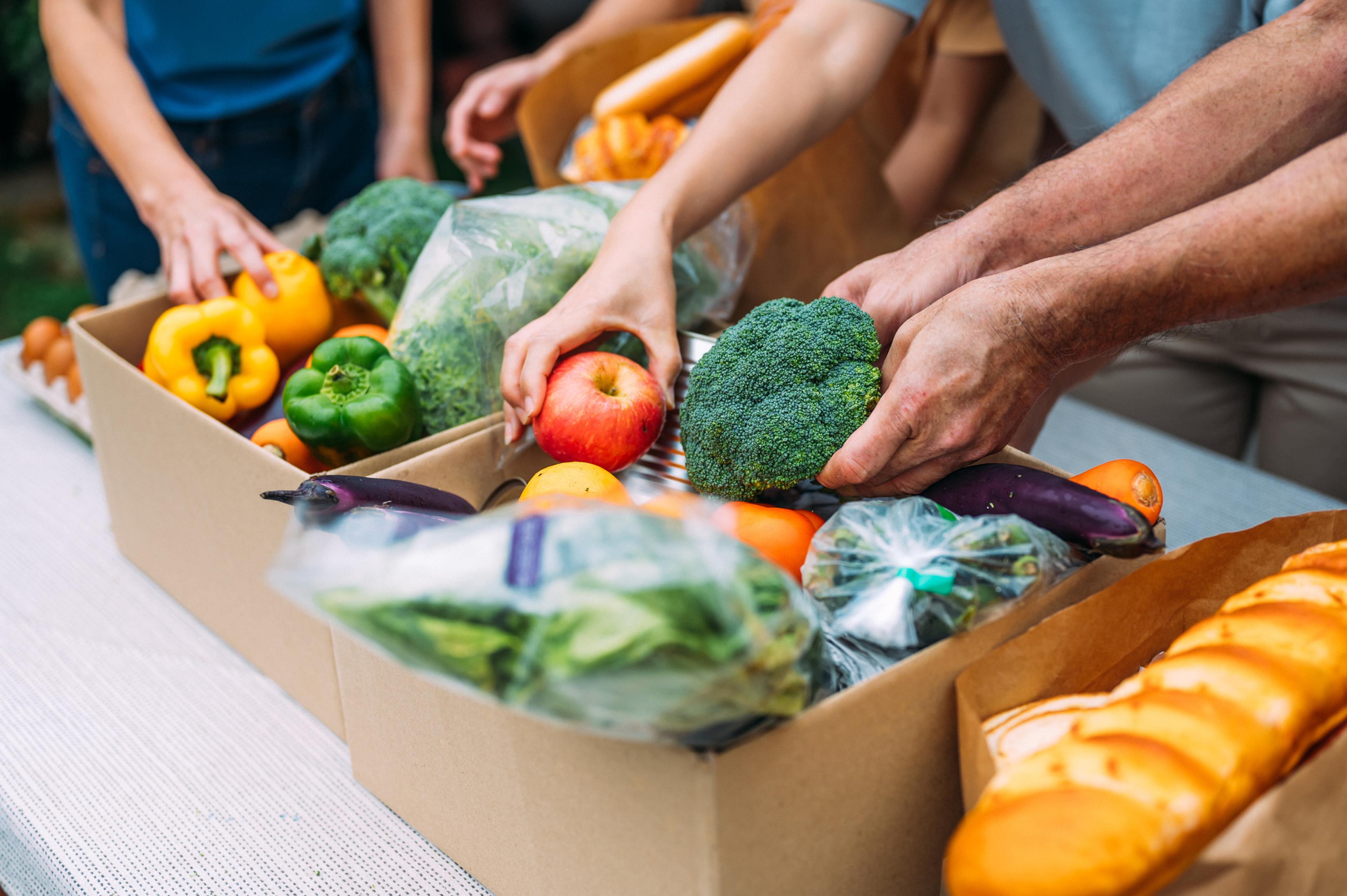Helping Struggling Michiganders Put Fresh Produce on their Tables
Amy Barczy
| 5 min read
Amy Barczy is a former brand journalist who authored content at Blue Cross Blue Shield of Michigan. Prior to her time at Blue Cross from 2019-2024, she was a statewide news reporter for MLive.com. She has a decade of storytelling experience in local news media markets including Lansing, Grand Rapids, Holland, Ann Arbor and Port Huron.

One in nine Michiganders struggle to put food on the table every day, according to the Food Bank Council of Michigan.
This means more than one million people in the state are experiencing food insecurity, which is defined as a lack of consistent access to food for an active and healthy life.
Food insecurity is a significant public health problem – and is often closely linked with poverty and other social determinants of health that affect a person’s overall health and wellbeing.
Addressing this need in the community is a priority for Blue Cross Blue Shield of Michigan. Blue Cross is a longtime supporter and partner to organizations fighting food insecurity in communities across Michigan. Recently, the company engaged in two new programs to expand access to fresh fruits and vegetables for those in need.
“Innovative food security efforts are key to increasing access to healthy nutrient rich food. Building systems to help communities easily access their local fresh fruits and vegetables is especially important,” said Pam Yager, director of Social Mission at Blue Cross.
What is food insecurity?
Food insecurity doesn’t necessarily mean a person or family is going hungry; rather, it may mean they cannot afford food that meets their household’s needs. Worry over how to spend a limited budget – like trying to prioritize between medication refills, bills and food – can cause a person increased stress and poorer mental health.
Food insecurity may also mean the food that they are able to buy may not be the healthiest or most nutritious – as many inexpensive convenience foods are high in fat, sodium and sugar.
Ordering groceries from the farm
A growing program in Michigan is working to build sustainable connections between people who are food insecure and local farmers. The Fresh Food Connections program started in 2020 and aims to help those with limited budgets – including families, children and seniors – connect to fresh foods available at local farms.
“We are working to make the food chain accessible, and making it more equitable,” said Janee Moore, who is the Food Access Public Health Consultant with the Michigan Department of Health and Human Services. “The goal of Fresh Food Connections is to work on the system, and not just one point in the system.”
The program works to create sustainable food systems that can exist long-term in communities – which means solutions offered through the program look different in each community, explained Moore.
It helps suppliers – the local farmers – to build equitable, accessible food networks. This includes developing alternative cost models for farmers to sell produce at a lower price point or offer a sliding scale to increase affordable access to nutritious locally grown produce to residents of their community. It also includes developing online platforms for farmers to accept food orders and SNAP benefits. Additionally, it includes encouraging minority farmers to participate in the program.
The program also helps people who are food insecure and who are eligible for SNAP (Supplemental Nutrition Assistance Program) benefits. Through Fresh Food Connections, individuals can place orders online for fresh produce from a local farmer, using their SNAP benefits. This builds dignity for people who are food insecure, Moore said, as the goal of the program is to replicate the experience of buying groceries.
Blue Cross is collaborating with the Blue Cross Blue Shield of Michigan Foundation, Michigan Department of Health and Human Services and Taste the Local Difference to establish the foundation for online SNAP sales by supporting local farmers so that they can continue to fulfill the food needs of the community and foster relationships and linkages between farmers, health clinics, SNAP users and community members to make long lasting partnerships that support a thriving local food system.
“Through targeted marketing services, we're not only breaking down barriers but building bridges that empower local farmers to reach new customers. Taste the Local Difference is at the forefront of this change, creating online stores that increase accessibility for SNAP customers,” said Haley Bennett, director of community partners at Taste the Local Difference. “It's about more than transactions; it's about transforming the way we engage with fresh, local produce and fostering a sense of inclusion that resonates beyond the checkout.”
Fresh Food Connections is available in Detroit, Ypsilanti, Lansing and the Upper Peninsula and will be expanded to Pontiac in Oakland County in early 2024. More than 30 Michigan farmers are participating in the program.
Using neighborhood-level hubs
Families living in the Morningside, Chandler Park, Islandview and Osborn neighborhoods on Detroit’s east side will have access to physical activity opportunities and fresh, healthy foods right where they live.
A program called Building Healthy Neighborhoods is behind the initiative, is facilitated by the nonprofit Brilliant Detroit in partnership with Blue Cross and the Blue Cross Blue Shield of Michigan Foundation.
Brilliant Detroit’s goal is to build “kid success neighborhoods” where families with children from belly to age eight have what they need to be school-ready, healthy, and stable. The nonprofit takes vacant houses in neighborhoods and repurposes them as a hub for community programs – connecting with kids and their families. Since 2016, Brilliant Detroit has served more than 13,000 children and their caregivers.
In the neighborhood hubs Brilliant Detroit has in the east side neighborhoods, the program will be offering ways to get physically active – including classes for martial arts, Mexican folk dance, Zumba, yoga and hustle classes – as well as fresh food through partnerships with Eastern Market and other local providers.
"We are profoundly grateful for the generosity and partnership with Blue Cross Blue Shield of Michigan and the BCBSM Foundation. Brilliant Detroit is deeply committed to driving real change that powers communities. Together, we are not just addressing needs but creating a transformative force that uplifts families on Detroit's East Side. This support is a testament to our shared dedication to measurable outcomes and the belief that every positive change begins at the community level," said Cindy Eggleton, co-founder and chief executive officer at Brilliant Detroit.
The Building Healthy Neighborhoods program aims to help families learn more about health, nutrition and fitness – building a living library of knowledge in their neighborhoods. In the long term, the program aims to help improve health outcomes for the residents it serves.





